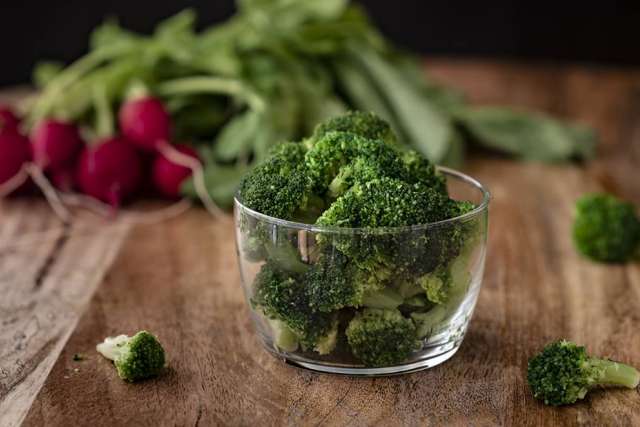If you knew there was a simple approach to reduce your cancer risk, would you take it? Well, one of the simplest strategies linked to cancer prevention is to increase your broccoli intake.
Yes. Eating more broccoli and other cruciferous vegetables can radically lower your chances of getting cancer.
Vijaya Surampudi, MD, assistant professor of medicine in the , explains why broccoli and other veggies are such a force against many types of cancers.
“There have been studies on this dating back to 1997 with Johns Hopkins University professor and nutrition biochemist Dr. Jed Fahey. Since then, we have found that there are anticarcinogenic properties found in broccoli sprouts,” Dr. Surampudi said.
“With broccoli, specifically, there is a high amount of a phytochemical called sulforaphane, which is a cancer-fighting plant compound that has been linked to reducing the risks of prostate cancer, breast cancer, colon cancer and oral cancers.”
Sulforaphane is also found in other vegetables such as kale, cabbage and garden cress. It is also present in cauliflower.
What makes broccoli so special?
Broccoli and the other aforementioned veggies contain natural vitamins and minerals that prevent cancerous cells from forming.
The bountiful and beneficial components of broccoli
- Carotenoids (antioxidants that protect you from disease and enhance the immune system)
- Vitamin C (protects your cells against free radicals)
- Glucosinolates (inhibit cancer enzymes and protect against inflammatory diseases)
- Folate; also known as vitamin B-9 (promotes cell growth and function)
- Dietary fiber (normalizes bowel movements; lowers cholesterol levels)
- Flavonols (reduce vascular disease)
Can eating more vegetables alter genetic diseases?
Hundreds of studies completed since the 1990s have shown a substantially greater reduction in genetic disease risk among people who consumed large amounts of vegetables compared to those who did not.
Despite genetic components, Dr. Surampudi explained that we can control a lot of what happens with our bodies.
“Thirty percent relies on genetics. The other 70% is what we do to ourselves,” she said. “Diet and nutrition is one of those recommendations that should be discussed at every annual physical. Doctors should be checking if their patients are getting the right amount of servings of fruits and vegetables.”
Dr. Surampudi said it’s the consistent, healthy, small things we do that make a difference in our well-being. Developing habits such as eating five servings of vegetables and two servings of fruit per day can have astronomically positive effects on our bodies and overall health.
Other benefits of vegetables
Cancer prevention is just one of the many benefits of eating vegetables. They also play a huge role in the prevention of cardiovascular diseases, cardiometabolic diseases and digestive diseases.
Dr. Surampudi said committing to eating vegetables three times a week can also decrease risk by more than 50% for other illnesses such as heart disease, Irritable Bowel Syndrome (IBS), gastrointestinal illness (GI), and high blood pressure, among other conditions.
“It may seem silly, but the data is there and it shows,” she says.
“A balanced diet with vegetables can change your health tremendously. It works more than people realize, but the proof is in the data.”




